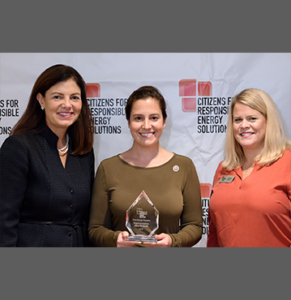Women make up more than half of voters in the U.S., and in the midterm elections last year, their votes were unquestionably the deciding factor in many races—particularly in suburban districts. And that outcome is concerning for the future of the GOP, which is experiencing a widening gender gap.
Fortunately, Republican women are doing something about it: Representative Elise Stefanik (R-NY-21), in particular, has risen to the occasion in recent weeks to address the problem, which she describes as “crisis level,” and offers real solutions. Articles in The Hill and The Washington Post, among others, have highlighted Representative Stefanik’s efforts to inform her fellow Republicans on the importance of women to the GOP’s future. She also wrote an op-ed earlier this month offering non-partisan advice to young women in Congress.
She has a proven track record of attracting women to the Republican Party. In fact, serving as the first female head of recruitment at the National Republican Congressional Committee (NRCC) for two years, she was instrumental in the GOP fielding a near-record 52 women nominees for House seats in 2018.
But the reality is all but 13 of those women lost. An underlying challenge for all Republicans in 2020 is to focus on winning issues—such as clean energy development—that resonates with key blocks of women. Congresswoman Stefanik has always known this, and CRES Executive Director Heather Reams actually wrote about it the week before the last midterm election.
There is convincing evidence women support clean energy. A recent CRES Forum poll found that 85 percent of suburban women support government action to accelerate the use of clean energy in the U.S. Clean energy is an important issue for many women because it aligns with their core values of economic freedom, national security and environmental stewardship.
 These should be bread-and-butter values for all conservatives, yet some in the party still do not fully embrace clean energy. Thankfully, GOP women are leading the way on this issue as well: Rep. Stefanik and Rep. Cathy McMorris Rodgers (R-WA), were recognized by CRES and awarded as Clean Energy Champions in 2018 and 2017, respectively, along with Senate Energy and Natural Resources Chairwoman Senator Lisa Murkowski (R-AK) in 2018. These women serve as great examples of Republican leadership supporting the development of clean energy production in their states, whether through hydropower, biomass, or access to federal lands and waters.
These should be bread-and-butter values for all conservatives, yet some in the party still do not fully embrace clean energy. Thankfully, GOP women are leading the way on this issue as well: Rep. Stefanik and Rep. Cathy McMorris Rodgers (R-WA), were recognized by CRES and awarded as Clean Energy Champions in 2018 and 2017, respectively, along with Senate Energy and Natural Resources Chairwoman Senator Lisa Murkowski (R-AK) in 2018. These women serve as great examples of Republican leadership supporting the development of clean energy production in their states, whether through hydropower, biomass, or access to federal lands and waters.
Rep. Stefanik understands that putting energy at the forefront is not just an argument about climate change; clean energy technologies represent a way to grow our economy and create jobs, power our industries in a more efficient way, and to secure our nation’s grid from foreign attacks and influences.
Just ask our military leaders. As one of our nation’s most trusted and enduring institutions, the U.S. military has adopted clean energy into their daily operations in a big way. For instance, the U.S. Army Fort Drum military reservation in Rep. Stefanik’s North Country region is making real progress with their 60-megawatt biomass power plant, a stunning feat in clean energy innovation.
Stories like this, spotlighting clean energy’s role in important American institutions, should supercharge the conservative voting base, because winning in the clean energy sector is important for women voters, and women voters will likely make all the difference once again in 2020 and beyond. CRES applauds Congresswoman Stefanik for her leadership on clean energy and other issues important to women.
